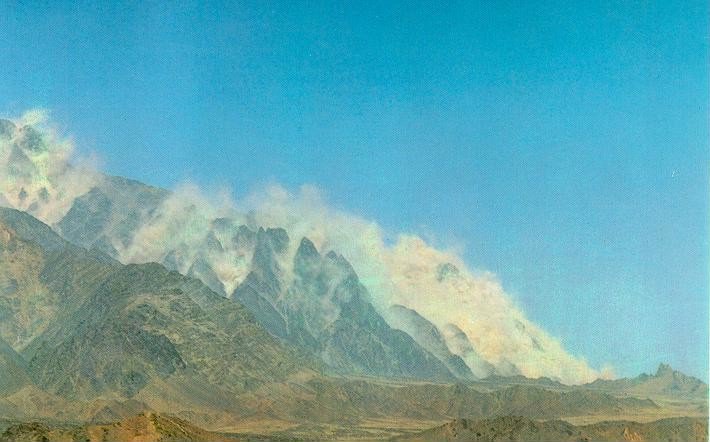- Web Desk
- Feb 24, 2026
Twenty-seven years of nuclear deterrence: Pakistan marks Youm-e-Takbeer
-

- Web Desk
- May 28, 2025

ISLAMABAD: Prime Minister Shehbaz Sharif extended his felicitations to the nation and all those who care about Pakistan on the occasion of Youm-e-Takbeer, commemorating 27 years since Pakistan became the world’s seventh nuclear power and the first among Muslim nations.
In a message, the prime minister noted that this year’s Youm-e-Takbeer holds special significance as Pakistan celebrates its triumph in the “battle of truth” against India’s unjust aggression. He expressed gratitude to Allah Almighty for His blessings, which have always elevated the nation.
Reflecting on history, PM Shehbaz recalled that in May 1998, India conducted five nuclear tests, posing a direct challenge to Pakistan’s security, defense, and sovereignty. In response, then-Prime Minister Nawaz Sharif, embodying the nation’s aspirations, authorized six nuclear tests on May 28, 1998, solidifying Pakistan’s status as a nuclear power and making its geographical boundaries inviolable.
Pakistan armed forces congratulate the country on Youm-e-Takbeer: ISPR
The prime minister paid tribute to the visionary leadership of Zulfikar Ali Bhutto and Nawaz Sharif, who steered the nuclear program to fruition. He emphasised that the echoes of “Allahu Akbar” from the mountains of Chagai continue to resonate as a national pledge.
President Zardari hails nuclear achievements, reaffirms commitment to peace
President Asif Ali Zardari also congratulated the nation on Youm-e-Takbeer, stating that the day marks Pakistan’s demonstration of nuclear capability and the attainment of strategic defense strength. He reiterated the country’s resolve to uphold sovereignty, independence, and territorial integrity.
Paying homage to the scientists, engineers, and civil and military leadership associated with the nuclear program, President Zardari honored the legacy of Shaheed Zulfikar Ali Bhutto, the founder of Pakistan’s nuclear program, and Shaheed Benazir Bhutto, under whose leadership the program advanced further.
The president underscored that becoming a nuclear power was not merely a technological milestone but a strategic decision to ensure peace through deterrence. In the evolving regional security landscape, he said, Pakistan’s nuclear capability serves as a credible minimum defense, safeguarding national sovereignty and security.
President Zardari reaffirmed Pakistan’s commitment to peaceful coexistence and adherence to international laws, asserting that while the nation does not seek war, its nuclear strength ensures that no adversary can compromise its sovereignty or security.
The day serves as a reminder of Pakistan’s resilience, strategic foresight, and unwavering commitment to peace through strength.




